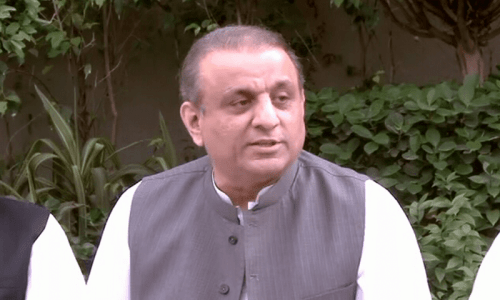
|
Getting your Trinity Audio player ready...
|
Introduction: A Bold Step Toward Economic Efficiency
The privatization of state-owned enterprises (SOEs) is increasingly being seen as a critical strategy to ease the financial burden on Pakistan’s national exchequer. Abdul Aleem Khan, the Minister for Privatization, emphasized this point during a meeting with the Board of the Privatization Commission, where he highlighted the role of SOE privatization in reducing the government’s fiscal strain. According to Khan, the privatization of state-owned businesses will allow the government to shift its focus away from continuously subsidizing unproductive entities, ultimately leading to a more efficient and fiscally responsible economy.
This article explores the importance of privatizing SOEs, the approach to divesting Pakistan International Airlines (PIA), and the broader implications for Pakistan’s economic future.
The Financial Burden of State-Owned Enterprises
Current Challenges in Managing SOEs
State-owned enterprises (SOEs) in Pakistan have long been a subject of debate due to their financial inefficiency and the strain they place on the national budget. While these entities were initially created to provide essential services and boost the economy, over time, many have become liabilities. These companies often run at a loss, and the government ends up providing financial support through subsidies and direct funding, which affects the country’s overall financial health.
The burden of supporting SOEs has left the government with fewer resources to invest in crucial sectors like healthcare, education, and infrastructure. Despite the government’s best efforts to reform these enterprises, the results have often been underwhelming. With mounting debt and operational inefficiency, privatizing SOEs has emerged as a logical solution to alleviate these pressures.
The Importance of Privatization
Privatization refers to the process of transferring ownership of a government-owned enterprise to the private sector. Proponents argue that privatizing inefficient SOEs allows the private sector to bring in better management practices, improve productivity, and introduce competitive forces. Privatization, in the right context, can lead to reduced fiscal pressure, improved services, and a more robust economic landscape.
In countries with a history of privatizing state-owned enterprises, studies have shown that privatization can spur growth in both the private and public sectors. For Pakistan, privatizing SOEs offers a dual benefit: it helps relieve the government’s financial burden while also increasing the competitiveness and performance of the enterprises being privatized.
Privatization of Pakistan International Airlines (PIA)
A New Approach for PIA’s Privatization
One of the largest and most debated state-owned enterprises in Pakistan is Pakistan International Airlines (PIA). Over the years, PIA has been plagued by operational inefficiencies, financial losses, and management issues. Despite numerous attempts at reform, the airline has struggled to compete with private carriers both domestically and internationally.
During the recent meeting of the Privatisation Commission, Minister Abdul Aleem Khan addressed the ongoing challenges surrounding the privatization of PIA. Drawing from previous experiences, the Minister emphasized that the privatization process for PIA would be approached differently, using lessons learned from past efforts. He stressed that the key to successful privatization would be ensuring transparency and adherence to established legal frameworks.
The Minister’s remarks suggest that the government has re-evaluated its strategy for selling PIA, aiming to attract viable buyers and make the process more streamlined. According to Khan, recent reforms to improve PIA’s operations have made the airline more attractive to potential buyers, increasing the likelihood of a successful privatization deal.
Improving Attractiveness for Buyers
The privatization of PIA has been complicated by the airline’s long history of financial losses and management issues. However, Minister Khan has pointed to reforms that have been implemented to address these issues, such as improving service standards and reducing operational inefficiencies. These reforms are expected to make PIA more marketable to potential investors, resulting in a more lucrative deal for the government.
Furthermore, the government plans to implement a transparent and structured bidding process for the sale of PIA, ensuring that it complies with all legal and regulatory requirements. This approach aims to foster confidence among potential buyers and ensure that the airline’s privatization is carried out in a fair and legally sound manner.
Privatizing Power Distribution Companies
Addressing Power Sector Issues
Another key focus of the Privatization Commission is the divestment of Pakistan’s power distribution companies. The power sector in Pakistan has long been a major concern, with state-owned power companies suffering from inefficiencies, mismanagement, and poor customer service. These companies also face high levels of debt and operational challenges, which place a significant burden on the national exchequer.
Minister Khan indicated that the privatization of these power companies would proceed in alignment with government priorities and regulations. He urged that outstanding issues within the Ministry of Energy be resolved within a week to move forward with the privatization process.
The privatization of power distribution companies is expected to bring significant improvements to the sector. Private sector management could potentially bring in new technologies, better customer service practices, and more efficient operations. By transferring the burden of managing these companies to the private sector, the government would be able to reduce subsidies and focus on more essential public services.
Ministerial Actions and Accelerating the Process
In the meeting, Abdul Aleem Khan stressed the importance of accelerating the privatization process while ensuring that it is conducted transparently. He called on all relevant ministries to expedite their work and address any pending matters that could delay the process. Khan also reiterated that nothing could be done that goes against the established legal procedures, signaling a commitment to following due process throughout the privatization of SOEs.
The Road Ahead for Privatization in Pakistan
Ensuring a Sustainable Privatization Model
As Pakistan moves forward with privatizing its state-owned enterprises, it will be crucial to ensure that the privatization process is not only transparent but also sustainable. The government needs to focus on long-term goals, ensuring that privatized entities are well-managed and that the benefits of privatization are realized over time.
The privatization of SOEs must be done in a manner that ensures social and economic stability. While privatization can relieve financial pressure on the government, the process should also take into account the impact on employees and local communities, ensuring that privatized entities remain accountable and serve the public interest.
Increasing Private Sector Participation in the Economy
Privatizing SOEs is part of a larger strategy to increase private sector participation in Pakistan’s economy. A thriving private sector is essential for the country’s long-term economic development. Privatization offers opportunities for both domestic and foreign investment, leading to increased capital inflows, innovation, and job creation. A successful privatization process could significantly enhance Pakistan’s competitiveness in the global marketplace.
Conclusion: The Future of Privatization in Pakistan
Privatizing state-owned enterprises is an essential step toward relieving the financial burden on Pakistan’s national exchequer and fostering economic growth. The government’s renewed commitment to privatization, especially in the cases of PIA and power distribution companies, signals a shift toward a more efficient and market-driven economy.
Through a transparent and strategic privatization process, Pakistan can unlock the full potential of its SOEs, improve service delivery, and reduce the fiscal strain caused by inefficient state-run companies. With the right approach, privatization can pave the way for a more prosperous and self-sustaining economic future for Pakistan.
FAQs
1. What is the purpose of privatizing state-owned enterprises (SOEs)? Privatizing SOEs aims to reduce the financial burden on the government, improve efficiency, attract investment, and enhance competitiveness. It allows the private sector to take over the management of these enterprises, resulting in better performance and reduced public subsidies.
2. Why is Pakistan International Airlines (PIA) being privatized? PIA has struggled with financial losses, operational inefficiencies, and management issues. Privatization is seen as a way to address these problems by bringing in private sector management that can improve the airline’s operations and profitability.
3. How will the privatization of PIA be different this time? The government has adopted a new strategy for PIA’s privatization, incorporating lessons learned from previous attempts. Recent reforms have improved the airline’s attractiveness to buyers, and the privatization process will be conducted transparently and in accordance with all legal regulations.
4. What are the challenges in privatizing power distribution companies? The power distribution companies in Pakistan are burdened with inefficiencies, high debt levels, and poor customer service. Privatization is seen as a way to introduce better management and improve operations, but addressing these challenges will require careful planning and regulatory coordination.
5. How will privatization benefit the economy? Privatization can lead to better management, increased investment, improved services, and a more efficient economy. It also reduces the government’s fiscal burden, allowing resources to be allocated to other critical sectors like education, healthcare, and infrastructure.
ALSO READ
https://skipper.pk/2024/12/25/ogdcl-revives-dars-west-2-well-sindh/





